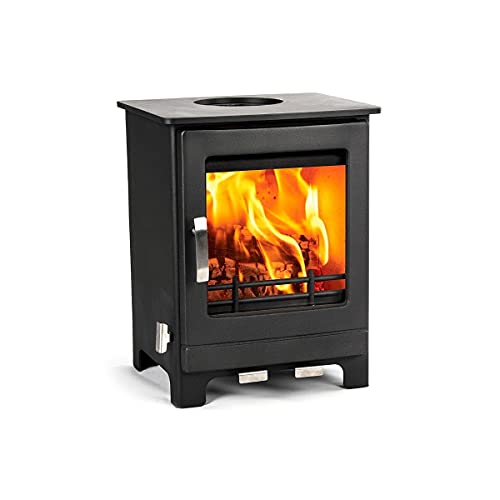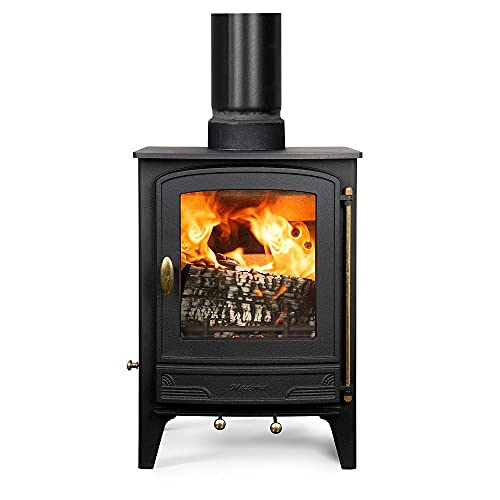"Ask Me Anything:10 Answers To Your Questions About Multi Fuel St…
페이지 정보

본문
 Small Multi Fuel Stoves For Sale
Small Multi Fuel Stoves For SaleSmall multi fuel stoves for sale near me fuel stoves available for sale offer the convenience of burning multiple types of smokeless fuels. They are versatile and can be used for various interiors or for home decors.
If you live in an area designated as a Smoke Control Area choose an DEFRA approved stove, such as the Stovax Stockton 5, to legally burn wood and other smokeless fuels.
Canister Stoves
Canister stoves burn fuel that is stored in sealed canisters of propane, isobutane, or a combination. They are the most popular kind of stove for backpacking and provide a high fuel efficiency and ease of operation. These stoves are perfect for summertime excursions and trips where you want to keep your backpack light or for those who prefer a simpler system. However, they aren't as effective in winter's harsh conditions and are not the best choice for high-altitude expeditions.
Certain canister-fuel systems such as the Jetboil MiniMo System or MSR WindBurner System have an integrated design which attaches directly to the fuel canister. This allows for a compact and lightweight system. While this could save space in your pack but it also exposes the canister to the elements and makes it less resilient to the extreme winds. Soto's non-integrated WindMaster stove however, offers a more resilient pot support system that helps keep the canister close to the burner for better control of heat during winds.
Many canister stoves can struggle in cold temperatures. When temperatures drop as does the pressure in the canister. This can result in low performance, or even failure. MiniMo's pressure regulator assists to combat this issue and ensures consistent heating under freezing temperatures.
Liquid fuel stoves can be refilled and require a separate fuel bottle. They are able to be used for a wider range of uses. Some stoves are able to use gas that is unleaded (the MSR WhisperLite International, for example) while others can utilize white-gas, isobutane/propane mixtures and kerosene, as well as white-gas. These types of designs are ideal for backpackers who will be in remote areas where it can be difficult to find fuel canisters that are already filled.
Some backpackers opt for wood-burning devices that are efficient in terms of fuel consumption, but they add a large amount of weight and bulk. There are also stoves for backpacking that burn biomass or wood as fuel. One of them is the Solo Stove Lite. These stoves work best for shorter backpacking trips, and don't provide the same level of convenience as a liquid-fuel or canister system.
Liquid Fuel Stoves
Multi-fuel stoves that use liquid fuel differ from canister stoves. They make use of an engine that maintains the pressure in the fuel container and pushes it into a tiny nozzle, where it gets burnt. They are better suited for cold weather camping or hiking, and can operate in temperatures that are below freezing. They are also easier to refill than canister stoves as you open the lid and add more. The majority of stoves that run on liquid fuel operate on white gas, which is a highly refined type of gasoline that has very little or no impurities and burns hot and clean in below-freezing temperatures. Certain stoves that use liquid fuel are able to run on cleaner, less expensive fuels such as kerosene and diesel.
The downside to these stoves is they are generally heavier than canister stoves and have a lot of parts and moving parts that require to be cleaned, primed or replaced over time. They are generally more difficult to operate in windy conditions as the pumping action can cause the flame to flicker and smoke. Some require a priming procedure that involves heating up just a little bit of fuel in a cup under the burner. This will convert the liquid fuel into gas.
Liquid fuel stoves perform well in cold temperatures, unlike stoves that are based on canisters. They are also more stable than canisters because they are lower to the ground and feature wide stove legs that function as solid platforms. Some are as stable as Trangia X2 multifuel stoves and can be used with the original Trangia burner (if you own the Trangia adaptor for X2).
Some models include shaker jets, similar to MSR which is more suitable for sparking white gas. These stoves are also great for travel to foreign countries, where canister fuel and even outdoor supply stores can be difficult to find. There are a variety of top, light, and easy to use liquid fuel stoves on the market. The Kovea Hydra is one of the top.
Gas Stoves
Gas stoves are a staple of American cooking. It's difficult to find a home in the US without one, and they are well-known for several reasons. They heat up quickly, utilize natural gas (typically cheaper than electricity) to provide energy, and don't require special installation or venting.
However, a growing number of scientists are raising concerns about the emissions they release. Gas stoves emit carbon monoxide, formaldehyde, and nitrogen dioxide at levels above EPA guidelines. These gases are associated with a range of health problems, such as lung infections, learning difficulties and a higher risk for childhood asthma. Even when they are not in use gas stoves release methane. This is a greenhouse and is more powerful than CO2, however it does not last as long in the air.
The commotion has ignited debate on whether gas stoves should be banned and lawmakers have offered their opinions on the subject. A group of Republican senators has introduced two bills that would prevent the CPSC from baning them, while House Republicans have enacted legislation to protect consumers' right to choose the kitchen appliances they prefer.
In the meantime, a few homeowners are considering switching from electric to gas or altering their existing stoves in an effort to reduce harmful emissions. Others are still reluctant to let go of their favorite kitchen appliance. Here's what you should be aware of the risks that come with these stoves.
The amount of nitrogen dioxide produced by a stove varies based on the kind of food being cooked and the temperature setting. However, they can still produce significant amounts of nitrogen oxide when they are in operation. According to a study carried out by the Rocky Mountain Institute, Physicians for Social Responsibility and Mothers Out Front in 2020 boiling water or baking a cake in a gas-powered oven may produce NO2 levels that are higher than the outdoor air standards. However, roasting chickens and using high flame settings can send these numbers skyrocketing.
If you are interested in cutting back on your emissions it's essential to purchase stoves that have an efficient design and follow a few easy energy-saving tips. Keep burners clean, for example to ensure they operate as efficiently as possible. It's also an ideal idea to only use the burners that you have to, as overusing them wastes up to 40 percent of their power.
Portable Stoves
A small stove can be an excellent addition to your camping equipment particularly if you're constantly in motion. They can help you cook and keep hydrated while biking, hiking, or hiking. Stoves can be powered by various fuel sources, ranging from charcoal and wood to propane and gas. The price of stoves is determined by the fuel you choose as well as the amount of energy and efficiency it consumes in addition to its size.
Small multifuel stoves are economical, especially if opt for one that uses propane or natural gas. They are also extremely efficient, requiring only a small amount of fuel to produce the same amount of heat as other stoves. Gas stoves have a bigger cooking surface than other options. This lets you cook two large pots or pans simultaneously.
While you may think that a butane stove is costly however, it's an excellent choice in times of emergency when electricity isn't available. Its lightweight weight and compact design makes it easy to carry and store. It is also a quick-heating kind of stove, meaning you can start to cook your food in no time.
In areas with limited access, however, it can be difficult to locate liquid fuel stoves. They're usually self-pressurizing, so you don't need a pump to start them up, but you might need to refill them following use. The flame's strength can be adjusted and you can reduce the temperature without reducing the heat output.
Solid fuel stoves can be lightweight and easy to use, but are not suitable for rainy or windy conditions. Solid stoves with fuel are more odorous and require Esbit tabs for fuel.
 A wood-burning stove has been popular in recent years because it is an easy and renewable fuel source. They aren't without limitations in their ability to control heat and flame, and they may also be subject to local fire bans. To prevent the spread of creosote as well as flammability issues, they must also be maintained carefully. Be sure to adhere to all height and clearance restrictions. Also, ensure that you have a safe means to eliminate smoke and ash.
A wood-burning stove has been popular in recent years because it is an easy and renewable fuel source. They aren't without limitations in their ability to control heat and flame, and they may also be subject to local fire bans. To prevent the spread of creosote as well as flammability issues, they must also be maintained carefully. Be sure to adhere to all height and clearance restrictions. Also, ensure that you have a safe means to eliminate smoke and ash.- 이전글12 Companies Leading The Way In Cast Iron Multi Fuel Stove 24.02.08
- 다음글Learn About Multifuel Stove With Back Boiler When You Work From At Home 24.02.08
댓글목록
등록된 댓글이 없습니다.